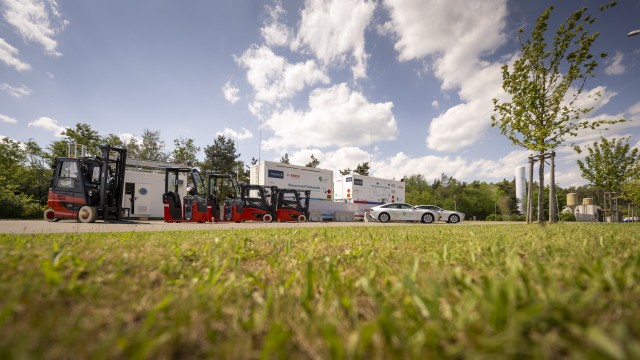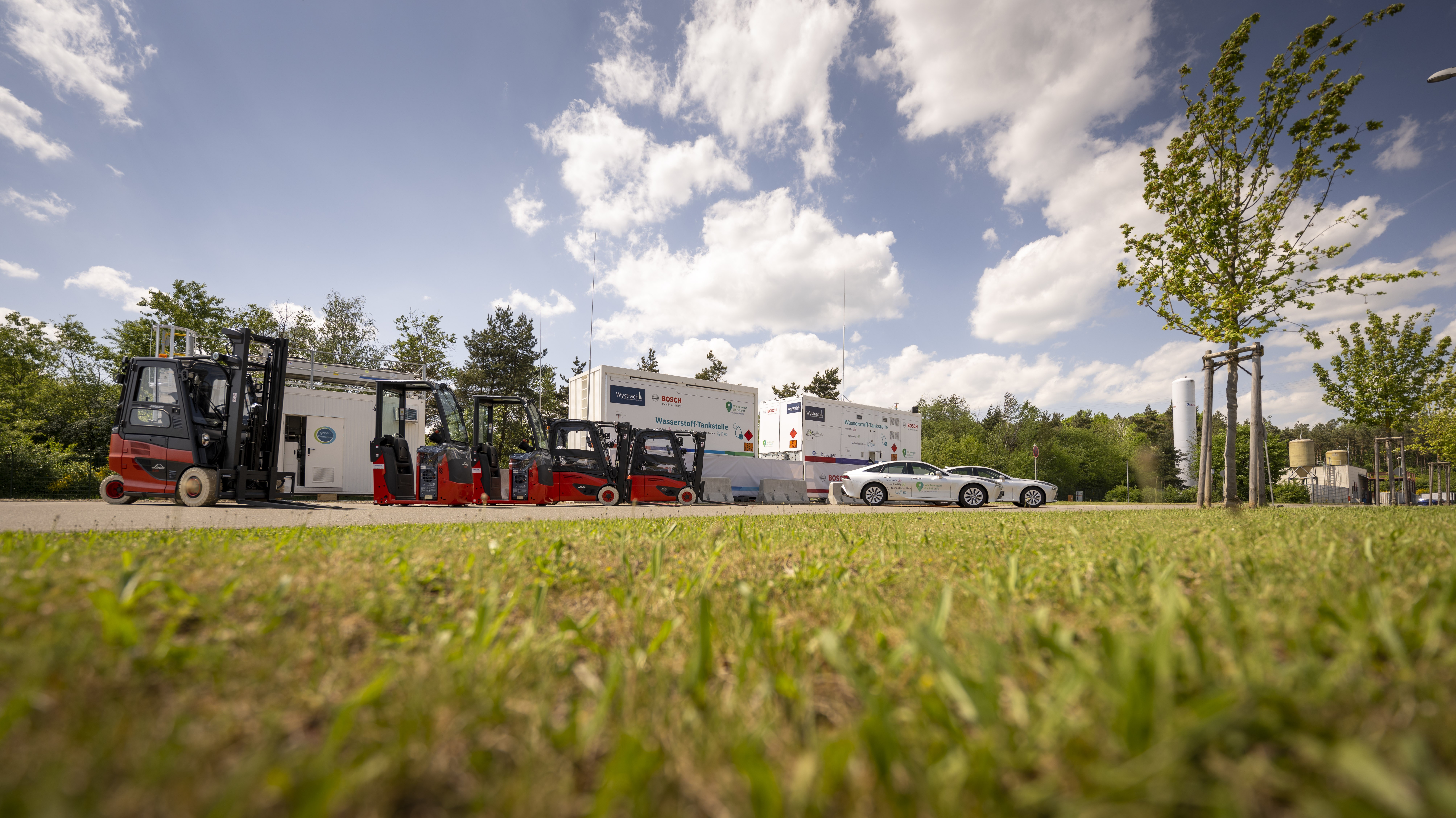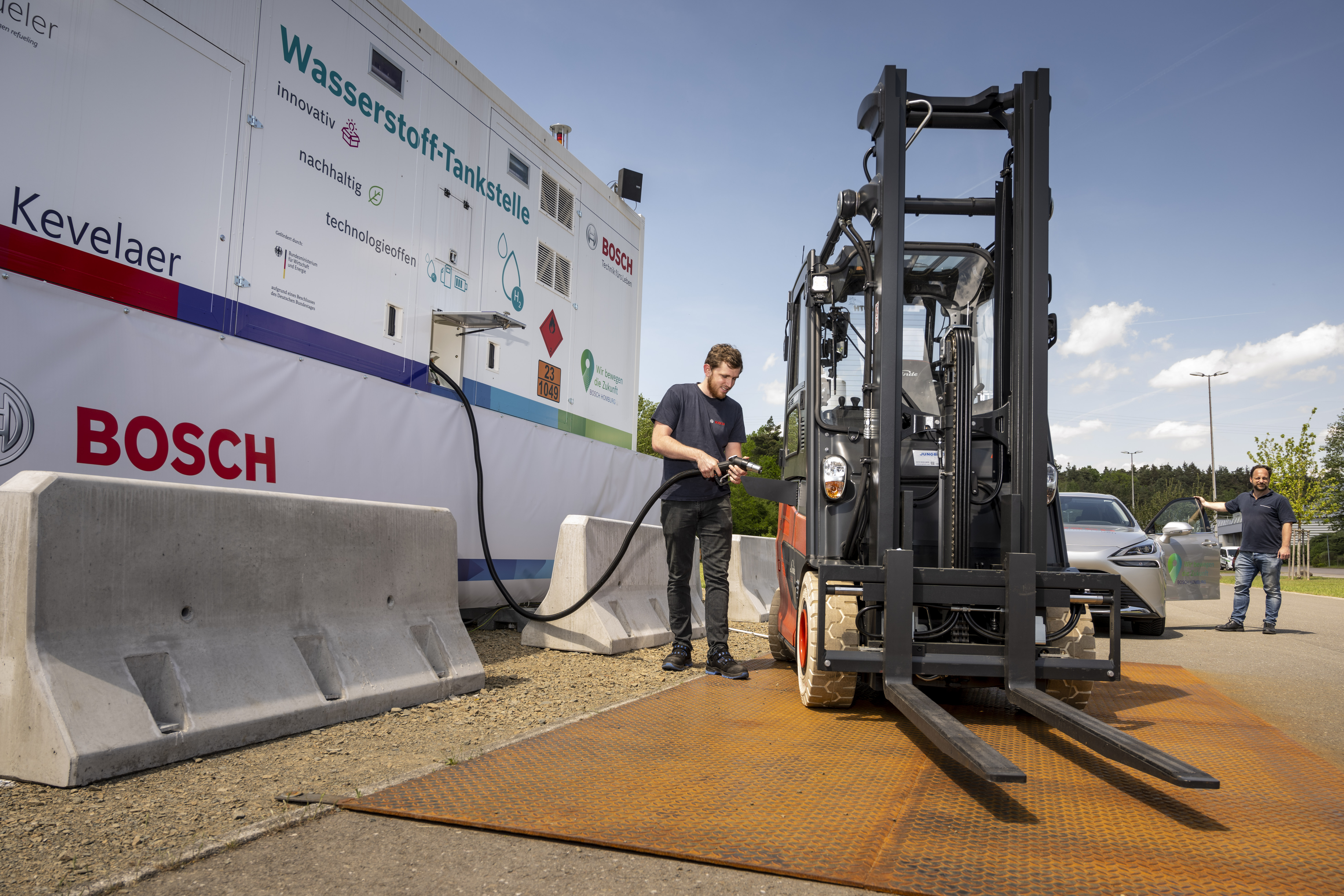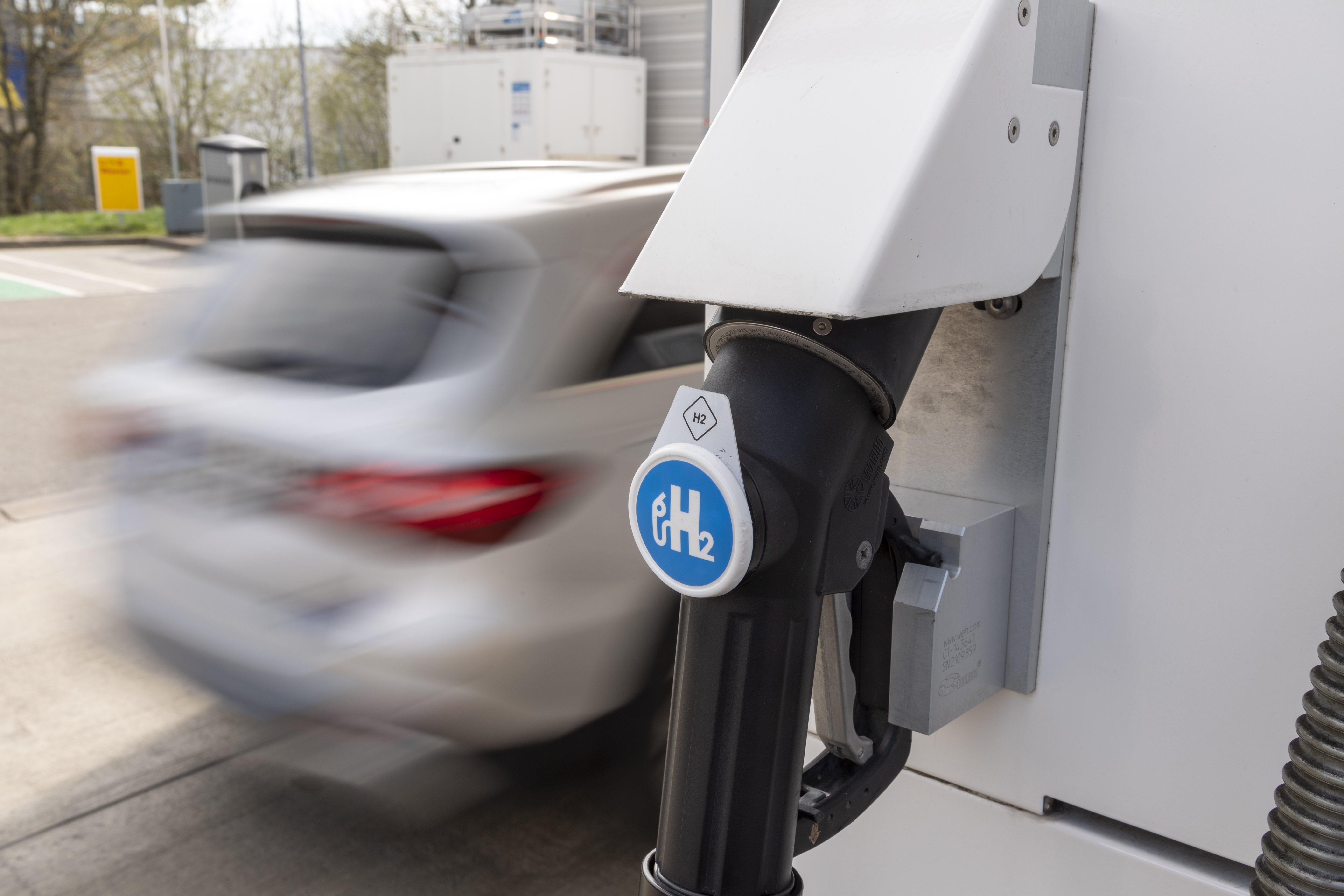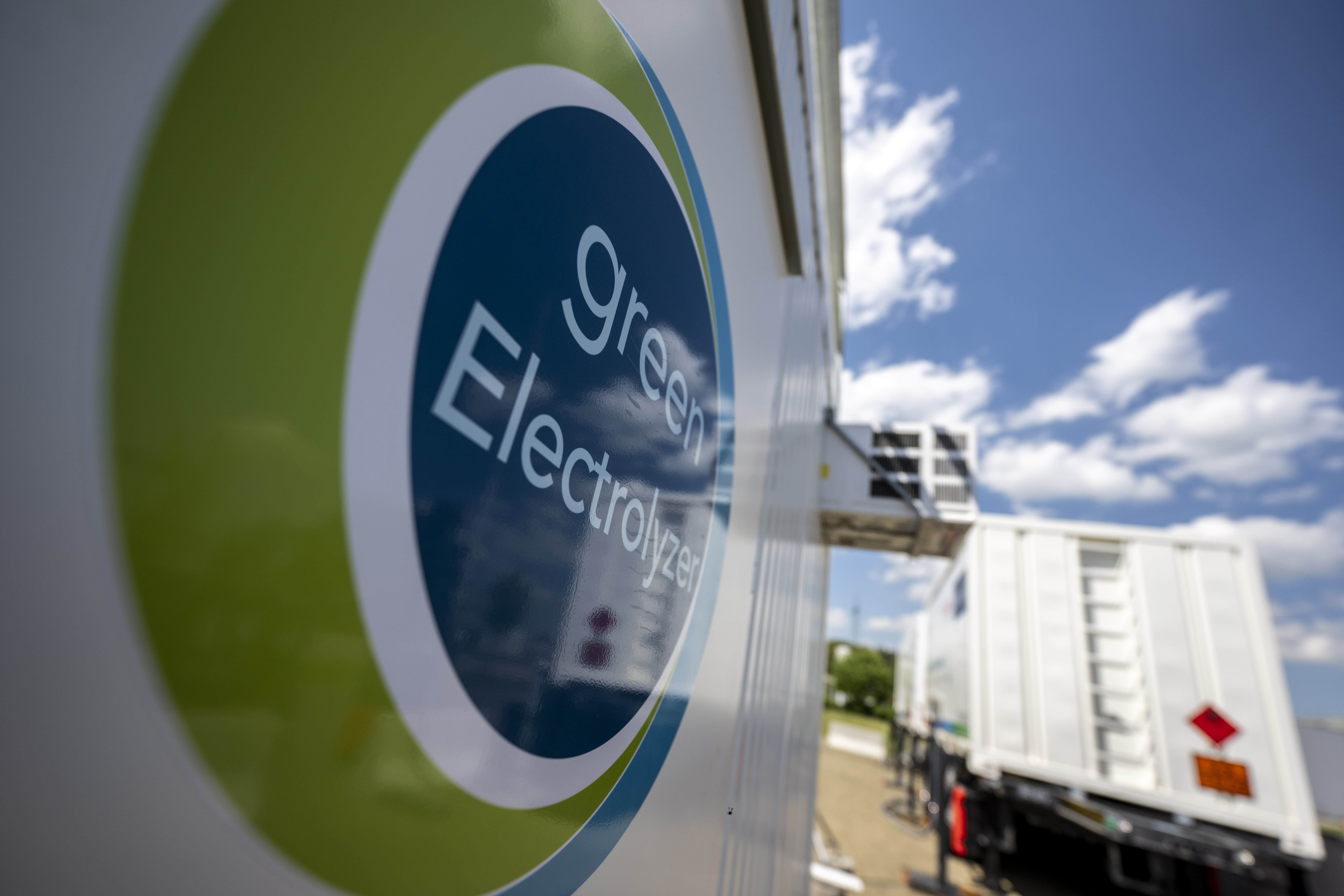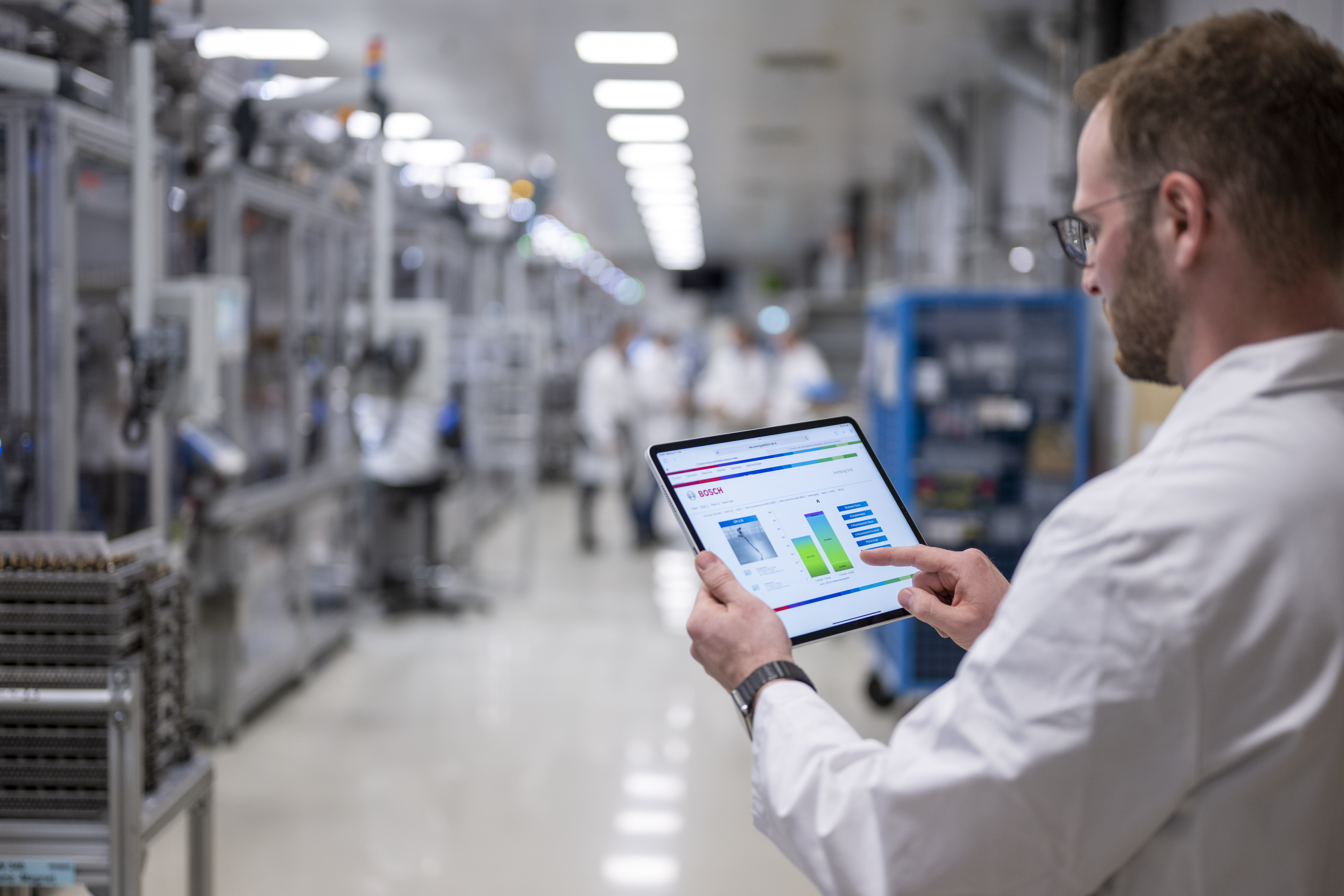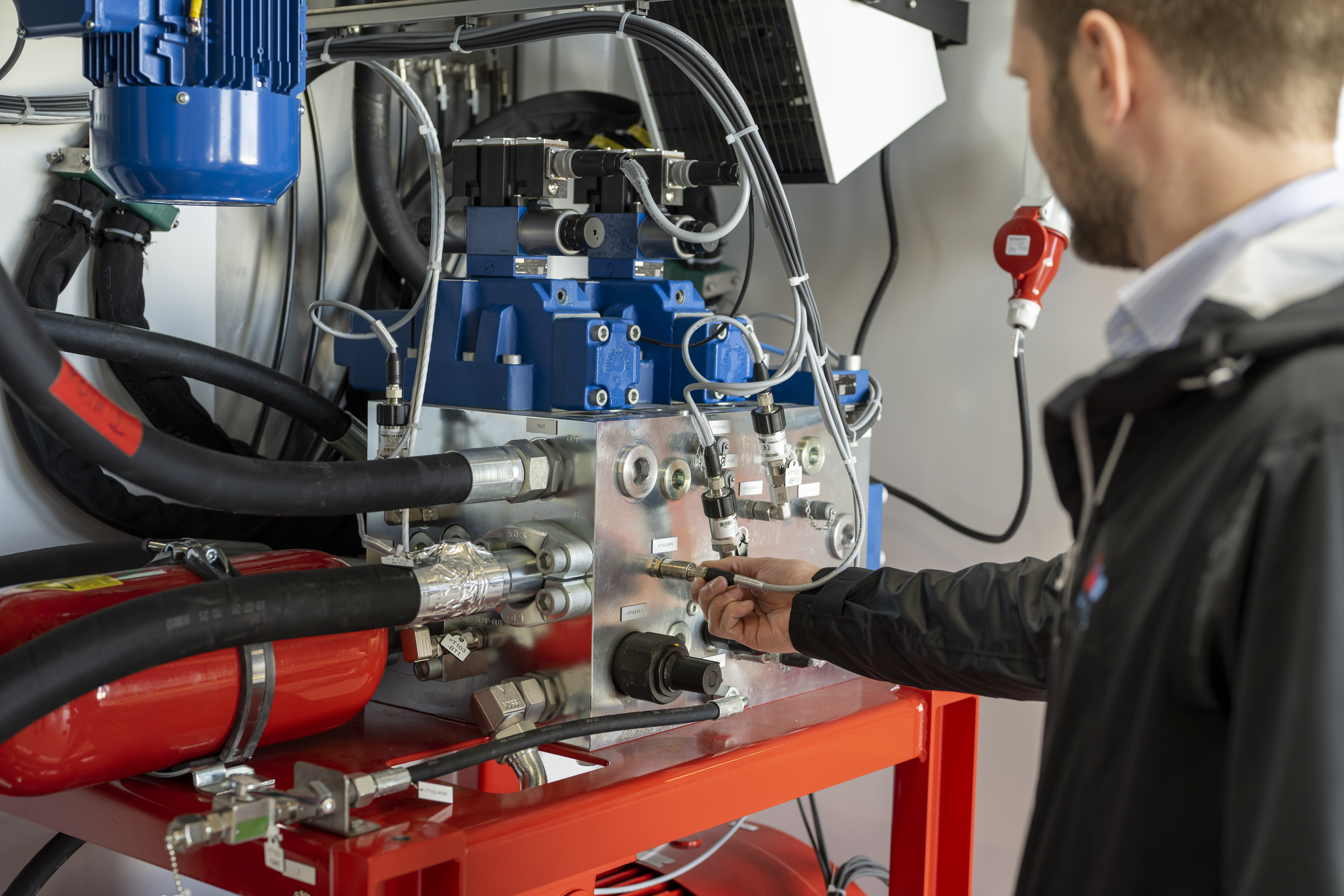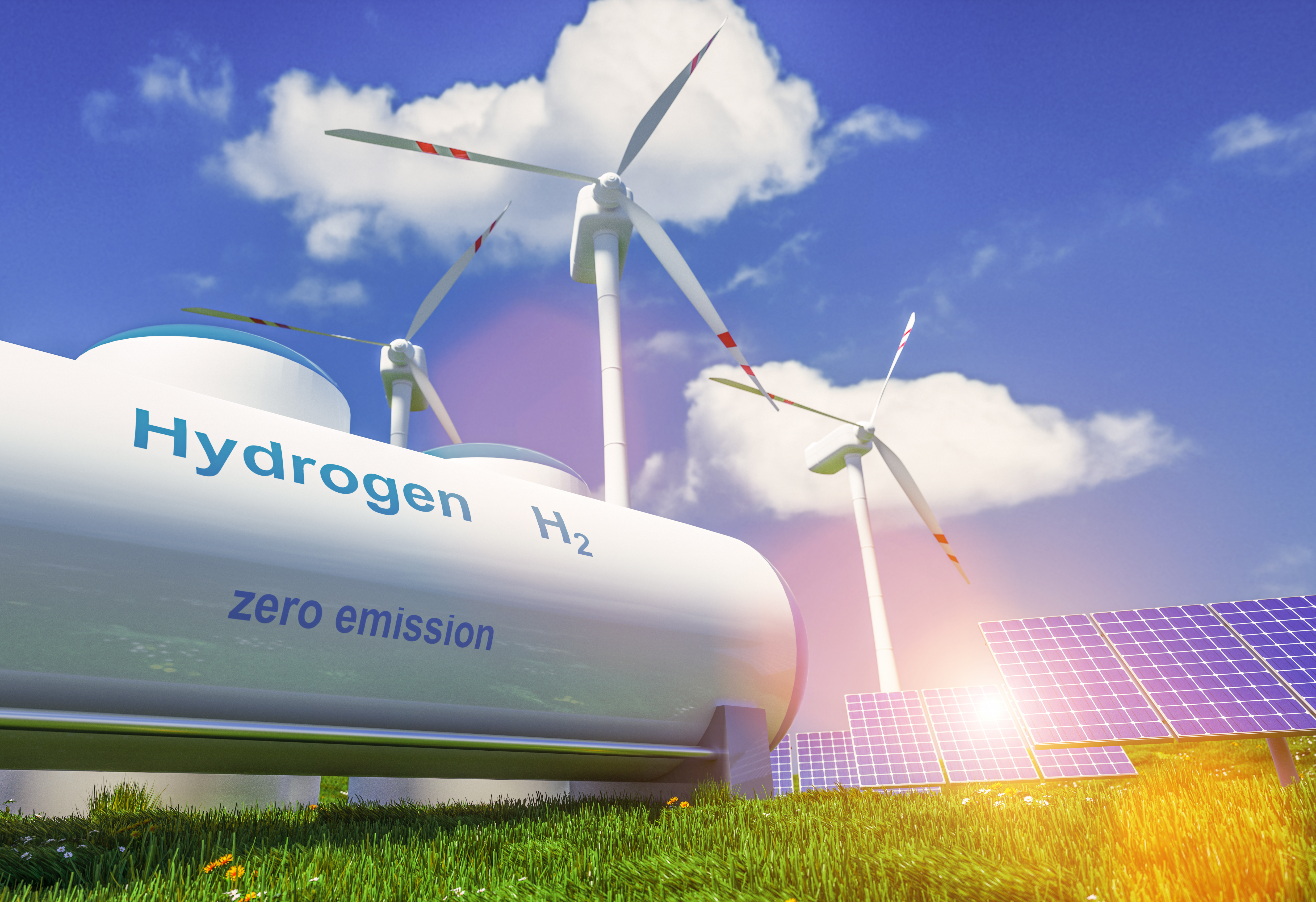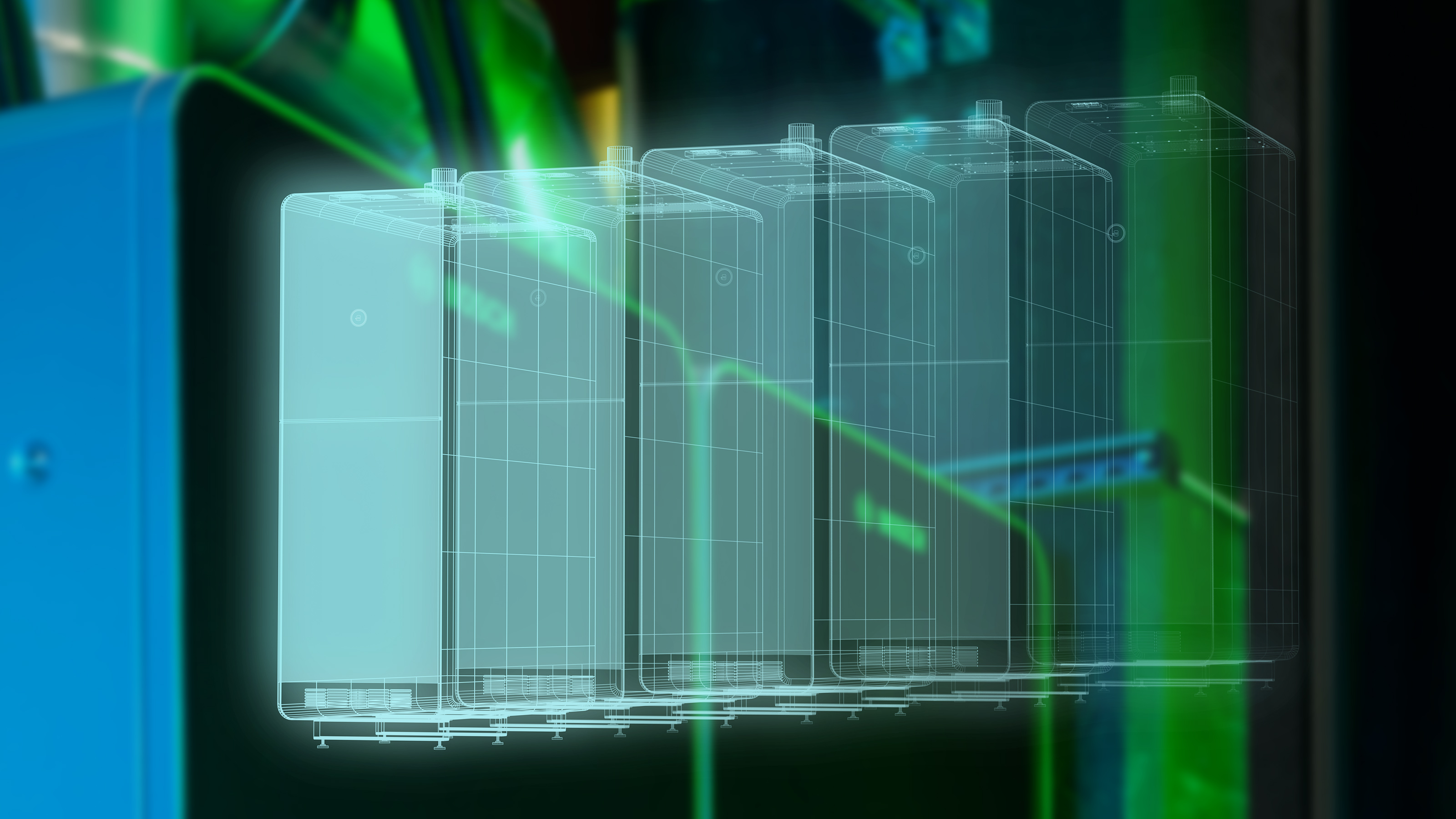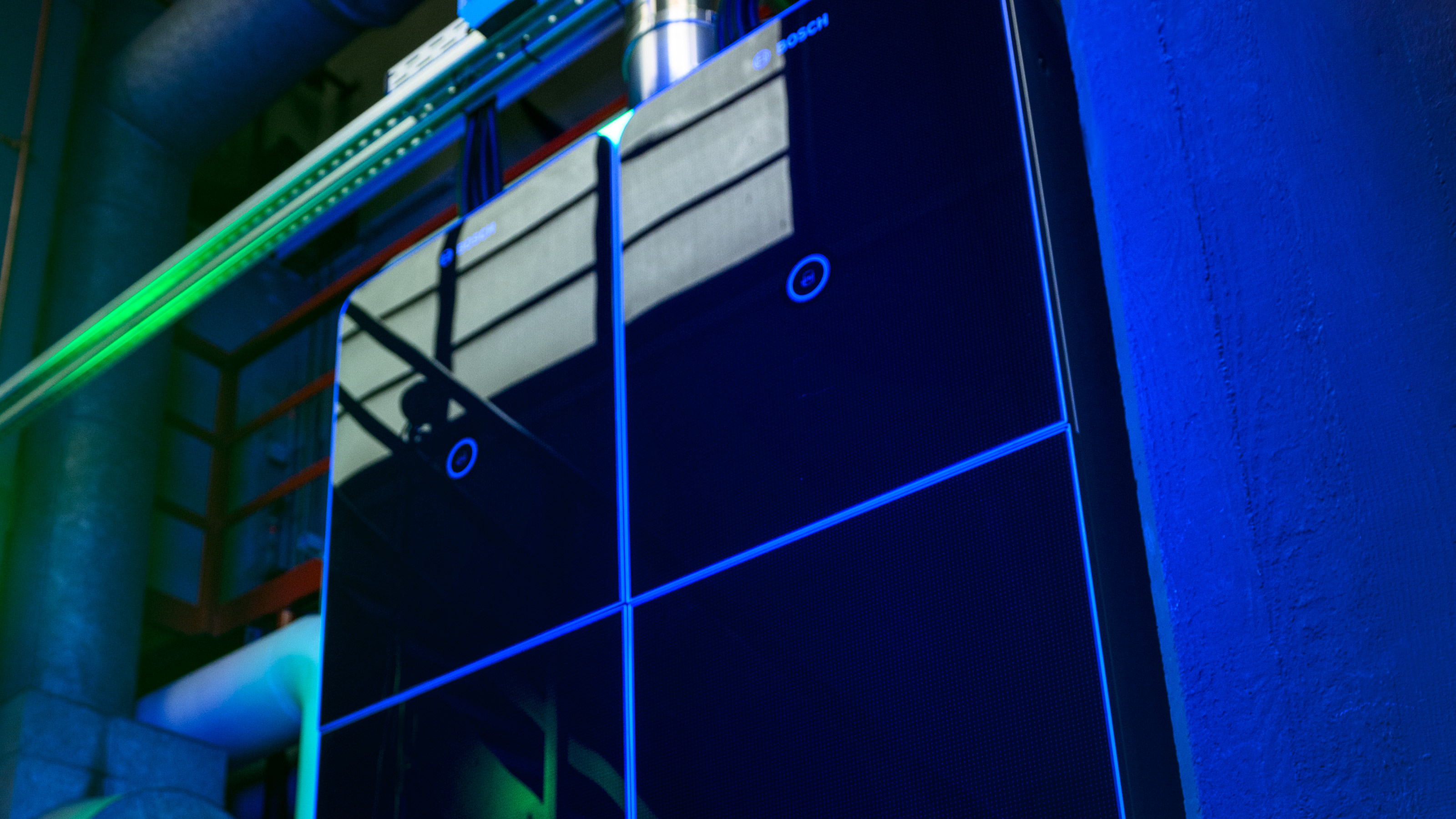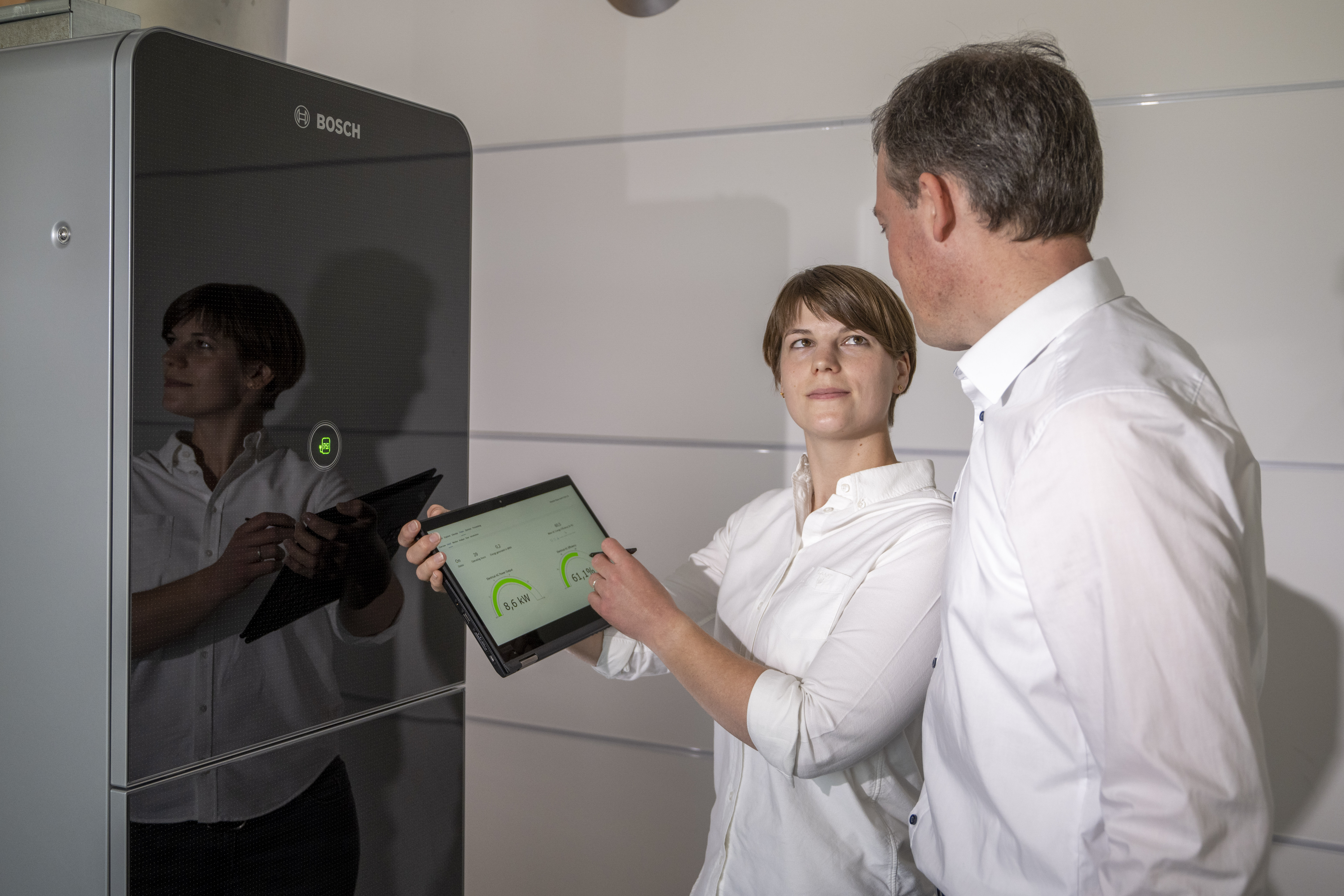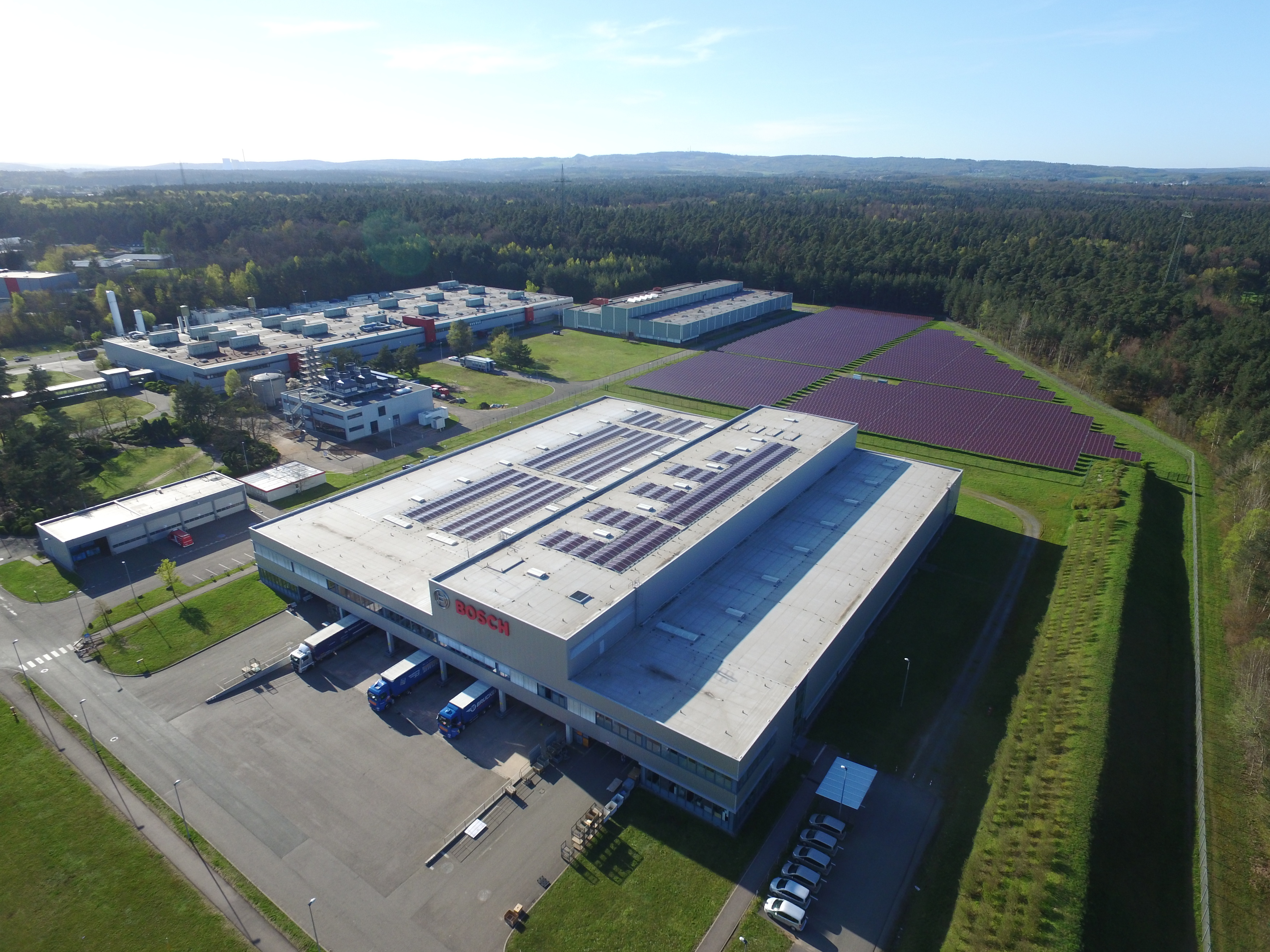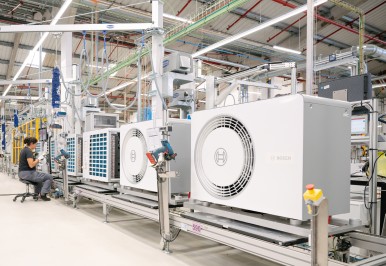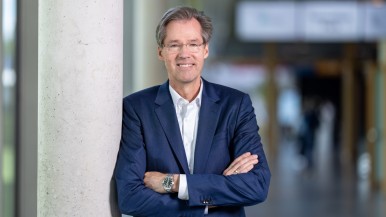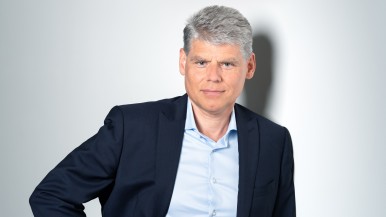Stuttgart, Germany – Bosch is throwing its weight behind the push to establish a hydrogen economy: “On the path to a climate-neutral future, we have to make it possible for energy-intensive industries to shift to renewables. Hydrogen will be a key element in security of supply,” says Rolf Najork, the Bosch management board member responsible for industrial technology and the company’s manufacturing technology chief. Bosch can offer the technology needed for hydrogen use in various sectors. The company is developing fuel cells for mobile and stationary applications, equipping hydrogen filling stations with compressors, and producing hydrogen in its own plants. In addition, Bosch plans to enter the electrolyzer components business. “We are getting hydrogen-based technologies out of the laboratory and into industrial practice – onto the roads and into factories,” Najork says. Through a newly established project unit, Bosch is making its hydrogen expertise available for other companies. It will be presenting its hydrogen activities at Hannover Messe from May 30 to June 2.
Contact persons for press inquiries:
Dennis Christmann
Spokesperson for industrial technology
Phone: +49 711 811-58178
Twitter: @BoschPress
Dörthe Warnk
Spokesperson for energy and building technology
Phone: +49 711 811-55508
Twitter: @d_warnk
About Bosch
The Bosch Group is a leading global supplier of technology and services. It employs roughly 402,600 associates worldwide (as of December 31, 2021). The company generated sales of 78.7 billion euros in 2021. Its operations are divided into four business sectors: Mobility Solutions, Industrial Technology, Consumer Goods, and Energy and Building Technology. As a leading IoT provider, Bosch offers innovative solutions for smart homes, Industry 4.0, and connected mobility. Bosch is pursuing a vision of mobility that is sustainable, safe, and exciting. It uses its expertise in sensor technology, software, and services, as well as its own IoT cloud, to offer its customers connected, cross-domain solutions from a single source. The Bosch Group’s strategic objective is to facilitate connected living with products and solutions that either contain artificial intelligence (AI) or have been developed or manufactured with its help. Bosch improves quality of life worldwide with products and services that are innovative and spark enthusiasm. In short, Bosch creates technology that is “Invented for life.” The Bosch Group comprises Robert Bosch GmbH and its roughly 440 subsidiary and regional companies in some 60 countries. Including sales and service partners, Bosch’s global manufacturing, engineering, and sales network covers nearly every country in the world. With its more than 400 locations worldwide, the Bosch Group has been carbon neutral since the first quarter of 2020. The basis for the company’s future growth is its innovative strength. At 128 locations across the globe, Bosch employs some 76,100 associates in research and development, of which more than 38,000 are software engineers.
The company was set up in Stuttgart in 1886 by Robert Bosch (1861–1942) as “Workshop for Precision Mechanics and Electrical Engineering.” The special ownership structure of Robert Bosch GmbH guarantees the entrepreneurial freedom of the Bosch Group, making it possible for the company to plan over the long term and to undertake significant upfront investments in the safeguarding of its future. Ninety-four percent of the share capital of Robert Bosch GmbH is held by Robert Bosch Stiftung GmbH, a charitable foundation. The remaining shares are held by Robert Bosch GmbH and by a corporation owned by the Bosch family. The majority of voting rights are held by Robert Bosch Industrietreuhand KG, an industrial trust. The entrepreneurial ownership functions are carried out by the trust.
Additional information is available online at www.bosch.com, www.iot.bosch.com, www.bosch-press.com, www.twitter.com/BoschPress.

